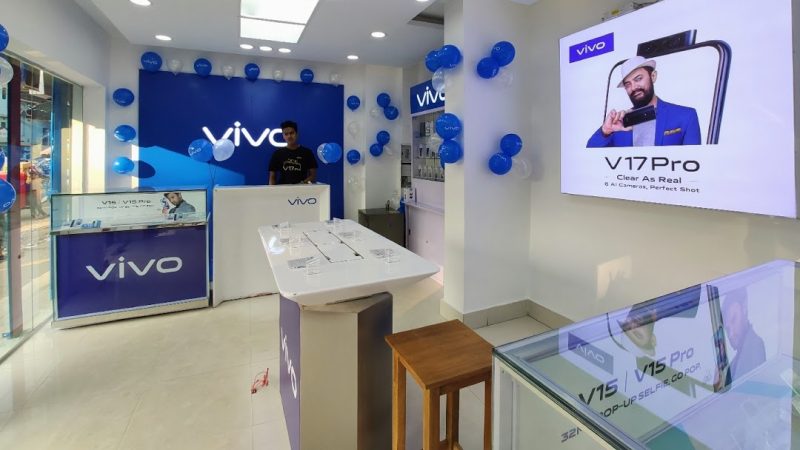(ATF) Vivo’s pull-out last week as the title sponsor of the Indian Premier League (IPL), a mega sporting event, is a clear indication that Chinese handset brands are in no mood to pump in more money amid the current uncertainties, following the recent border standoff between China and India.
Industry watchers said that the expansion plans of most Chinese handset vendors such as Xiaomi, Oppo, Vivo, RealMe and OnePlus, that have cornered around 80% of the entire Indian smartphone market, have almost screeched to a halt as they get surrounded by mounting geopolitical tensions and a consequent social backlash against Chinese products.
Several industry executives that Asia Times Financial spoke to said, on condition of anonymity, that while Chinese brands are grappling with restoring their supply chains and meeting the pent-up demand post the three-month lockdown in India, investments into the Indian operations for these brands are either being scaled down, or getting pushed to the backburner.
“Smartphones in India have now become a commodity. When a product reaches the stage of a commodity in maturity, the ability for a company to succeed in a market depends on parameters other than technology, like marketing ability, manufacturing agility to new changes and all that,” said George Paul, CEO of the Manufacturers’ Association for Information Technology (MAIT), which claims to represent 70% of mobile handsets makers in India, including Samsung, Apple, Xiaomi, and Wistron.
“Technology solely is no more an engine of success in the market and brands like Vivo have reached where they have reached in India because they have invested in that much amount of market and channel building. And if the general mood in the country threatens to impact their sales, then it does not make sense to invest more in India,” Paul said.
“[So], we are definitely seeing the Chinese companies looking at how the policy framework evolves in India,” he added. “Vivo’s withdrawal from sponsoring the IPL is [therefore] also an indication that Chinese companies are waiting and watching before making further investments.”
Read more: Oppo cancels live online phone launch in India amid calls to boycott Chinese goods.
Chinese nationals in India fear backlash, anxious over anti-China sentiments
Chinese brands are indeed hemmed in on all sides by new rules, protests and backlashes.
In late June for instance, right after the border skirmish on June 15-16, India outlawed 59 Chinese mobile apps, including the popular SHAREit, TikTok, UC Browser, and SHEIN, citing them to be a security threat. This ban was widened last week with India including some more mobile apps of Chinese companies such as Xiaomi Corp and Baidu Inc.
According to reports, these moves were not only to address security threats, but also to counter China’s dominant presence in the country’s internet services market.
Four days later, the Confederation of All India Traders (CAIT) that represents 700 million traders across the country, released a list of more than 500 Chinese products that account for almost $13 billion of annual imports, that they decided to boycott selling.
Renewed campaign
CAIT said last week it will launch a renewed ‘China Quit India’ campaign across 600 Indian cities on August 9 as an escalation of its boycott call.
In June, right-wing activists also flocked outside Oppo’s handset plant in the state of Uttar Pradesh to protest over the Chinese incursion, which forced Oppo to scale down production to 30% of its normal capacity, reports said.
And India recently announced stringent approval processes for Chinese companies wanting to invest in the country. Simultaneously, New Delhi tightened norms for Chinese companies wanting to participate in government tenders as well.
According to an industry executive who also requested anonymity, the banning of Chinese apps has been a huge blow to Chinese handset sales because most of them will be forced to serve their handsets with “the plain vanilla” – the Android Operating System, which connects to servers in the US – and not in China.
Some of the outlawed apps come pre-loaded on most Chinese smartphones, and the consequence of outlawing these apps could potentially mean that Chinese handset makers would not be able to install these apps on new devices meant for India.
“Clearly the anti-China sentiments has somewhat vitiated the investment atmosphere for the Chinese brands. If this persists for a while, I don’t think other Chinese brands, barring one or two exceptions perhaps, would invest anymore in India,” said a handset manufacturer, who did not want to be named.
Other impacts
The source added that the ripples of the backlash are not only impacting their investment plans but are also leading to other strategic consequences.
“Daunted by the uncertainties Vivo and Oppo, for instance, have not participated in India’s recently announced Production Linked Incentive (PLI) scheme, which is one of the best direct incentive schemes ever for handset production,” he said.
“Despite its allure, the fact that Oppo and Vivo have stayed away from the PLI [the Production Linked Incentive scheme] signifies that these two Chinese brands do not have the confidence in India’s policy framework”, he added.
Meanwhile, after pulling from the Indian Premier League cricket tournament, Vivo seems to have started tightening its marketing spend elsewhere already. Reports today said that Vivo has decided to pull out of two more title sponsorship deals – the ‘Big Boss’ reality show and the Pro Kabaddi League.
























